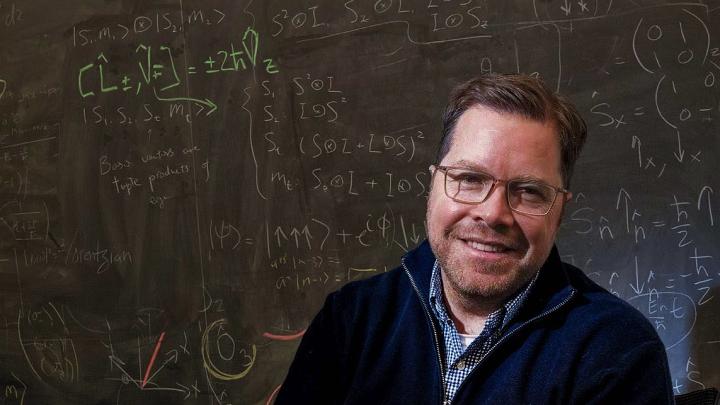As a child growing up in Québec, Louis Deslauriers was obsessed with airplanes. He would draw them in class: cargo carriers, fighter jets, passenger airliners—anything with an engine and the ability to fly. “I was trying to do physics, although I didn’t realize it at the time,” he says. “When I got older, I thought, ‘Oh, that’s what it’s called. That’s what I need to do.’” In college at Florida’s Embry-Riddle Aeronautical University, he studied physical engineering; then he earned two master’s degrees, in electrical engineering and physics, and a Ph.D. in applied physics, at the University of Michigan. His trajectory shifted during his postdoc, when an adviser introduced him to the study of science education—“essentially, learning about how we learn.” Immediately, he was hooked (psychology was also a lifelong curiosity). Now a senior preceptor in physics and director of science teaching and learning in the Faculty of Arts and Sciences, Deslauriers has published influential research on memory and retention, “engaged learning,” and what one paper title described as the “dangers of fluent lectures,” which can fool students into feeling that they’re learning more than they really are (true learning requires “cognitive effort”). The field of science education “is much more advanced than most people realize,” Deslauriers says. “When you’re an expert in this field, you realize it’s still in its infancy and there’s so much to be done. But at the same time, there’s a lot that we know about what works in the classroom. I’m passionate about bringing that to educators.” Decades later, and now a father of four children (the youngest is three, the eldest 23), he remains passionate about airplanes. “Still, at my age,” he laughs. “Airplanes are the last thing I look at every night before I fall asleep.”
Louis Deslauriers

Louis DeslauriersPhotograph by Jim Harrison
You might also like
Artificial Intelligence in the Academy
Harvard symposium assesses the new technology.
How Does Hate Spread?
Harvard symposium probes antisemitic, Islamophobic sentiments
Sam Altman’s Vision for the Future
OpenAI CEO on progress, safety, and policy
Most popular
More to explore
How is Artificial Intelligence Being Taught at Harvard?
A new Harvard course on artificial intelligence teaches students how to use the tool responsibly.
Civil War American Writer and Abolitionist John Greenleaf Whittier
Homes of the poet and abolitionist, whose verses were said to have inspired Abraham Lincoln.





